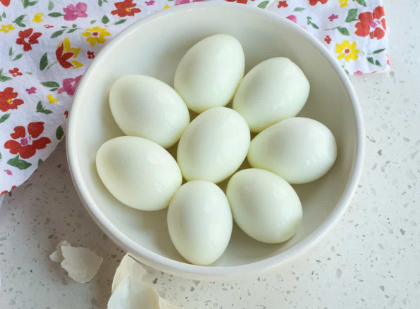Boiling eggs might seem like one of the simplest cooking tasks, yet achieving that perfectly cooked consistency—whether you prefer soft-boiled, medium, or hard-boiled—can sometimes be elusive. One common mistake many make is starting with cold water, which can affect cooking times and results. Here’s a straightforward method to boil eggs that ensures they turn out just the way you like them every time.
Boiled eggs are a versatile food that can be enjoyed on their own, added to salads, or used in various dishes. They are a good source of protein, vitamins, and minerals, making them a healthy choice for any meal.
Materials Needed:
Fresh eggs
Timer
Steps to Boil Eggs Perfectly:

Room Temperature Eggs:
Start with eggs that are at room temperature. This helps to prevent the shells from cracking due to a sudden change in temperature when they hit the hot water.
Boiling Water:
Adding the Eggs:
Once the water is boiling, reduce the heat to low (just enough to maintain a simmer) and use a spoon or ladle to gently lower the eggs into the water. This prevents the eggs from bouncing and cracking.
For soft-boiled eggs: Cook for about 4-6 minutes.
Adjust the time slightly depending on the size of the eggs and your altitude, which can affect cooking.
Cooling the Eggs:
Peeling:
After the eggs have cooled for about 5 minutes in ice water, gently crack the shells and peel them under a little running water. The water helps to lift the shell away from the egg.
Freshness: Use relatively fresh eggs, but not the freshest you can find, as slightly older eggs peel more easily.
Consistency: Use the same method and timing once you find what works best for your preferred level of doneness.
Storage: Boiled eggs can be stored in the refrigerator for up to a week. Keep them in their shells until you’re ready to eat them to maintain freshness.



